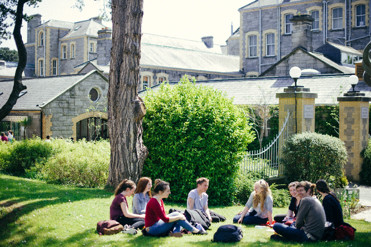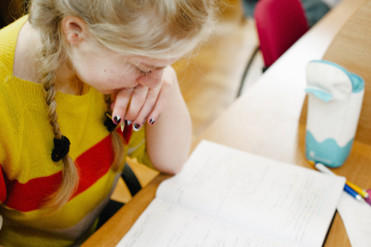Master in Education Studies (Intercultural Learning and Leadership)
Applications for the September 2025 intake are now open and will close on the 12th June 2025. Eligible applicants will be called for interview.
Apply Now for MES ICLL
Please contact [email protected] to express your interest in this course or if you have any general queries.
What is the Master in Education Studies (Intercultural Learning and Leadership)?
The Master in Education Studies (Intercultural Learning and Leadership) is an innovative and unique course for educators who want to engage with the opportunities and challenges of teaching in a diverse and globalised world. This course aims to equip participants with the threshold academic knowledge of educational leadership, in the context of critical examination of race, language diversity, and religious diversity. Through engaging in this Masters, participants will be prepared to take on leadership roles in their own settings, bringing the skills of a critical intercultural educator to enable all learners to achieve their potential.

Who is the programme for?
This programme is for educators who want to better understand the role of education in a diverse society. The Master in Education Studies (Intercultural Learning and Leadership) is rooted in principles of social justice and equality, and is relevant for all educators and education leaders. The programme is endorsed by the CSL - Centre for School Leadership.
What will I study?
Students on this programme will study four discrete modules in first year; namely, schools and diversity, inclusion and intercultural education; school leadership in diverse settings; teaching English as an additional language; and religious diversity and intercultural education. In year two, students have the opportunity to focus on one of these areas in greater depth. They will develop research skills and prepare a dissertation of 20,000 words on a topic relevant to intercultural education.
What are the programme aims?
On successful completion of the MES in Intercultural Learning and Leadership (ICLL), participants should be able to:
(i) Critically analyse key legislative and policy documents which underpin intercultural education in Ireland
(ii) Critically discuss the current context of diversity in Ireland: cultural, linguistic, ethnic, socio-economic and religious
(iii) Examine the implications of intercultural diversity for all educators, including those in leadership roles
(iv) Apply current theory and best practice regarding cultural diversity, additional language learning, religious diversity in the context of intercultural education and in the context of school leadership in diverse settings
(v) Employ effective pedagogical approaches for the inclusion of children and young people from minority ethnic, cultural and language backgrounds in the education system
(vi) Plan and implement strategies for establishing a whole-school/whole-class ethos that supports all learners and particularly those from minority ethnic, cultural and language backgrounds
(vii) Critically evaluate a set of School Leadership paradigms from a critical-intercultural perspective
(viii) Demonstrate a critical self-reflective stance vis-à-vis their own positionality in relationship to leadership in a diverse educational setting
(ix) Design and implement a programme of ethical scholarly research, write up analysis of research results and communicate findings in both written and oral format in an appropriate scholarly manner.
How is the programme assessed?
Assessment is linked to the modular nature of the programme. It consists of assignments, case studies, a discussion forum and a literature review in Year 1, followed by a research proposal and dissertation in Year 2.
What are my career options?
Graduates of the programme would be well prepared for many leadership and management roles in schools, including principalships. Graduates would be well placed to offer professional development for teachers or to work with pre-service teachers on the topic of intercultural education. Finally graduates could contribute to the field of intercultural education by presenting conference papers and writing journal articles.
Early Exit Award
Students have the opportunity to exit this course with a Postgraduate Diploma (in Intercultural Learning and Leadership) upon successful completion of Year 1.

Module Listing
YEAR 1
MODULE 1
Schools and diversity, inclusion and intercultural education
- Aspects of culture and individual cultural backgrounds
- Approaches to understanding diversity in society and education
- Policy, legislation and literature impacting on culture and education
- Effective teaching and learning strategies for the diverse classroom
- The inclusive school: building a shared sense of community
MODULE 2
School leadership in diverse settings
- School leadership: Concepts and paradigms
- Learning-centred leadership
- Ethical leadership
- Distributed leadership
- School leadership: Practitioner perspectives
MODULE 3
Teaching English as an additional language: An intercultural approach
- Linguistic diversity in the context of intercultural education
- The role of oral language in the development of English language proficiency
- Literacy: supporting the development of English language proficiency
- Developing a whole-school and community approach to teaching English as an additional language
- Assessment & evaluation
MODULE 4
Religious diversity and intercultural education
- Religious diversity in the context of intercultural education
- Key pedagogical principles underpinning the religious dimension of intercultural education
- Encounters with the ‘other’; entering into interreligious dialogue
- Learning from the experience of others
- Developing a whole-class and whole-school approach to religious diversity and intercultural education
YEAR 2
The research dissertation
- Research methodologies and research ethics
- The research design process
- Research proposal
- Dissertation (20,000 words)
General information
Duration: 2 years part-time
Award level: NFQ 9
ECTS Credits: 90
Awarding body: Trinity College Dublin, the University of Dublin
Minimum Entry Requirements
An honours degree (level 8) with a second class honours or higher, and at least three years' teaching experience or equivalent experience. English Language Requirement IELTS Level 6.5 (or equivalent).
Delivery Mode
In Year 1, lectures generally take place two weekends per month on Fridays (6.00pm to 9.00pm) and Saturdays (9.00am to 4.00pm). In Year 2, students usually attend lectures early in Term 1 after which they will focus on their research dissertations.
Please note that this information is subject to change.
Course Fees
The fee for the course is €3,950 per annum. Full details of fees are outlined in the Institute Charges Policy.
How to Apply
Applicants must submit an online application and are typically required to undergo an interview. For further details, please contact [email protected]
International Students
For information about eligibility for this programme please contact [email protected]. All applicants for our programmes must have a minimum English level. You will find more information about the English Language Requirements in the Study With Us section of the website under ‘How to Apply’.
You can find information about international institute fees and charges in the policies section of our website.
You can also find information on accommodation and student support services in the Student Life section of our website.
All MIE programmes follow the academic year, with all programmes starting in late August/ early September.
Sample titles of completed dissertations
The role and experiences of middle leaders in Community National Schools
An examination of school leaders' understanding of intercultural education
Principals of Catholic schools leading intercultural education
Investigating the development of academic language proficiency in a multi-lingual classroom
Does a Student Council promote voice and participation in an ethnically diverse Irish primary school? A case study
Hard to reach parents or hard to reach schools? A case study of ethnic minority parental involvement in an Educate Together National School
An investigation into the role of complementary schools in the Irish education system: A case study
An investigation into the influence of assistencialism on students' perceptions of and attitudes to diversity in local and global contexts.
The role of teacher identity in the culturally diverse classroom
The question of religious / belief diversity in Irish multidenominational primary schools: Teachers' perspectives
An examination of the experiences of recent immigrant parents navigating their way through the Irish education system
An investigation into the impact of the phasing out of the Resource Teacher for Travellers in three schools in the West of Ireland: Views of teachers and Travellers
Exploring the capacity of human rights based actions in cultivating intercultural values in the Irish primary school
Implementing the Primary Language Curriculum in a multilingual infant classroom
Transition experiences of children from ethnic minority backgrounds from Early Years Services (EYS) into primary school
Teaching language strategies in the mainstream post-primary classroom: A community of practice initiating change through collaboration
Minority ethnic students’ experiences and perspectives on teacher diversity

